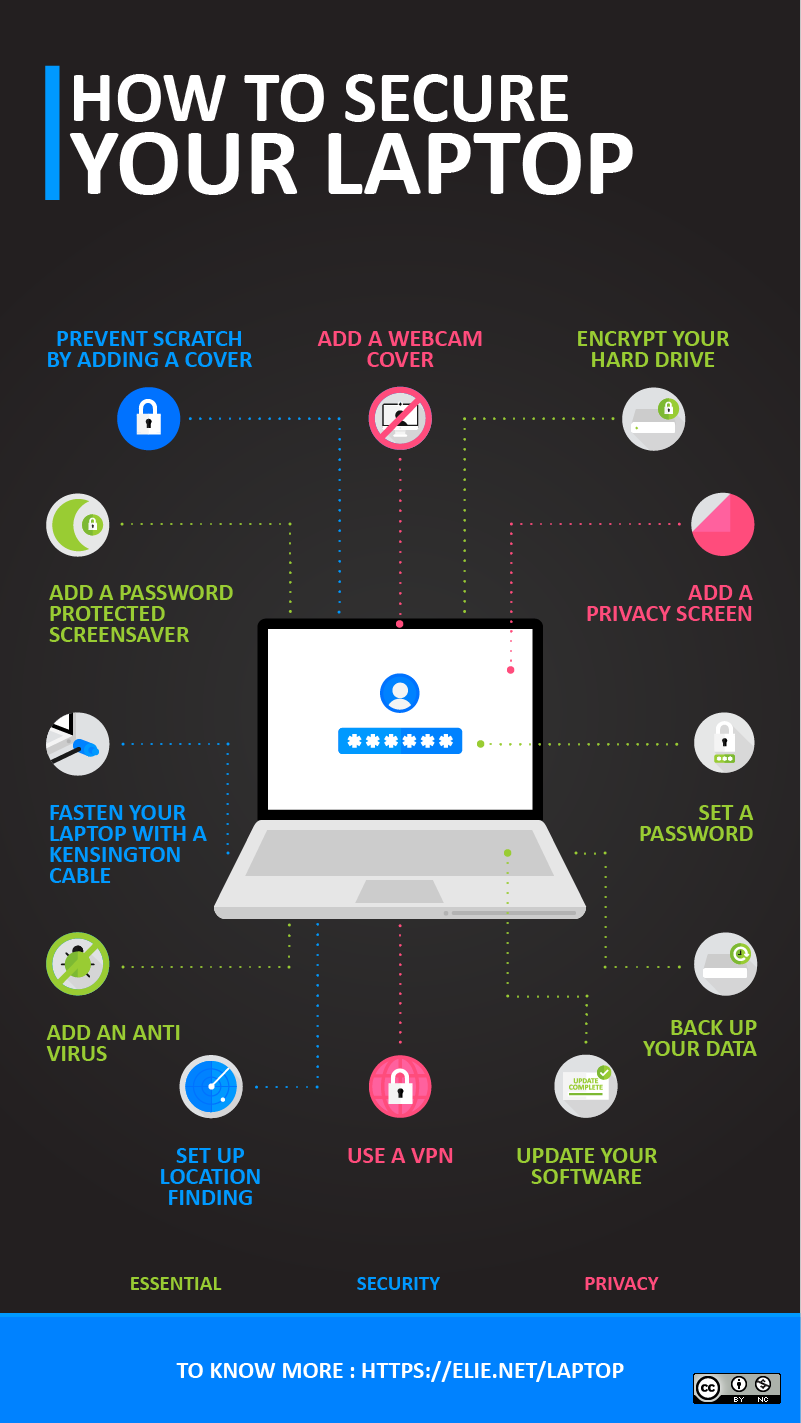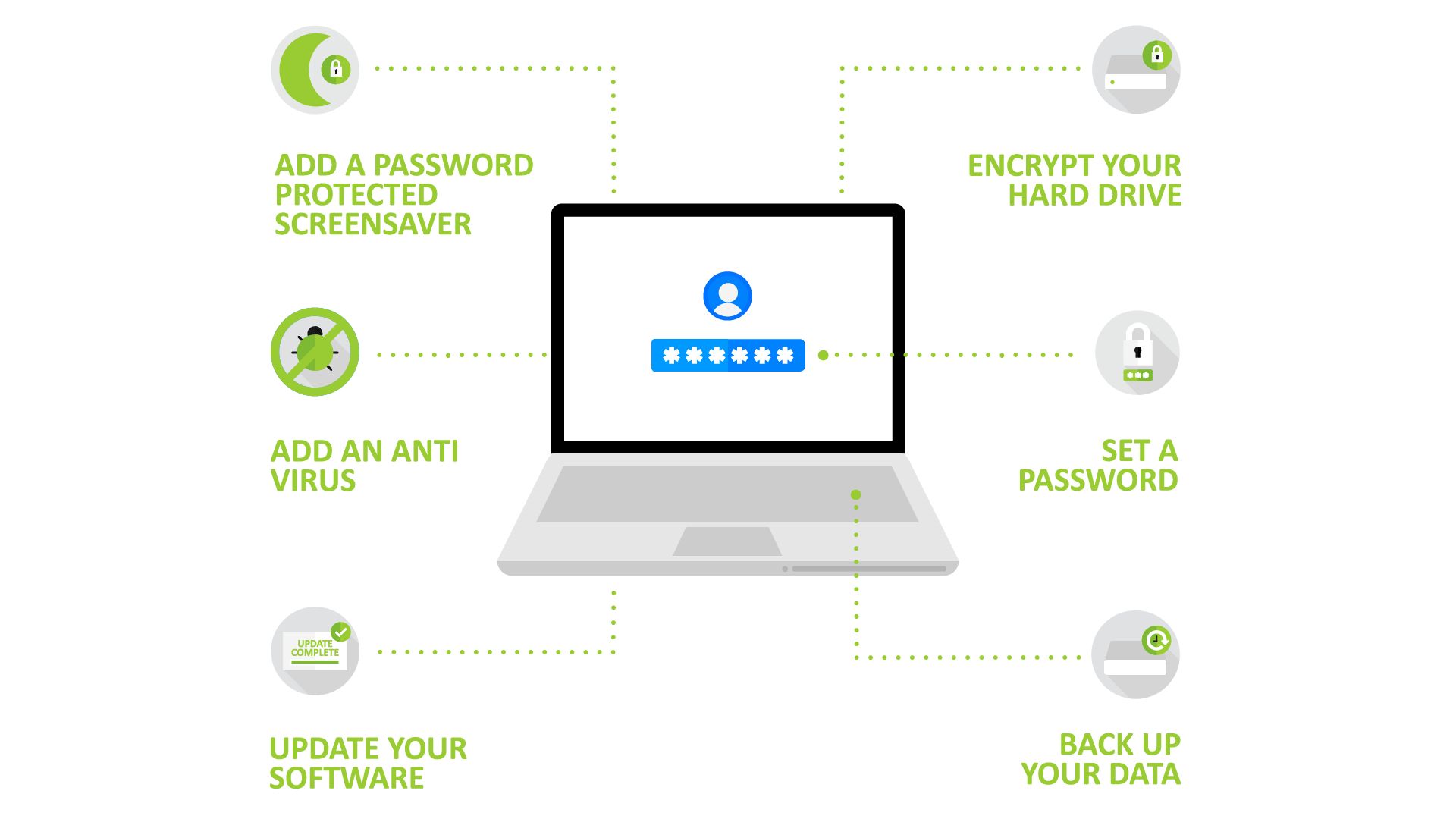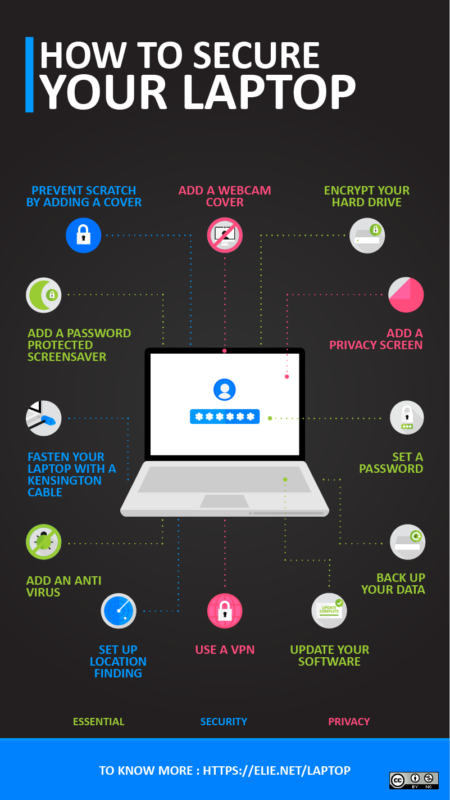Laptop Security Features: Safeguarding Your Digital Life

In today’s interconnected world, your laptop is more than just a device—it’s a repository for personal data, sensitive work files, and confidential communications. With the rise of cyber threats, understanding laptop security features is crucial to protect your information from prying eyes and malicious actors. In this comprehensive guide, we’ll explore essential security features, best practices, and emerging technologies designed to keep your laptop secure.
Why Laptop Security Matters
The shift to remote work and digital reliance has made laptops a prime target for cybercriminals. Common threats include:
- Data breaches: Exposing sensitive files.
- Malware attacks: Compromising system functionality.
- Phishing scams: Tricking users into sharing credentials.
Investing in a secure laptop with advanced features can help mitigate these risks and safeguard your digital presence.
Core Security Features in Modern Laptops
1. Biometric Authentication

Biometric authentication, such as fingerprint scanners and facial recognition, provides a high level of security by tying access to unique physical traits.
- Fingerprint Scanners: Quickly unlock your device with a single touch.
- Facial Recognition: Uses infrared cameras to recognize your face, even in low light.
Pro Tip: Ensure that your laptop’s biometric system is paired with trusted software like Windows Hello for added protection.
2. Trusted Platform Module (TPM)
A TPM chip is a hardware-based security feature found in many modern laptops. It:
- Encrypts sensitive data at the hardware level.
- Protects encryption keys and passwords.
If you’re using a laptop for work or personal finances, a TPM is indispensable.
3. Built-In Privacy Features
Many laptops now include physical privacy shutters for webcams and microphones. These features allow you to:
- Protect against webcam hacking.
- Disable audio input when not in use.
For added security, consider laptops like the Lenovo ThinkPad series, which come equipped with these features.
4. Hardware-Level Security
Some high-end laptops, like those by HP and Dell, include hardware-level security such as:
- BIOS-level protection to prevent unauthorized firmware changes.
- Self-healing BIOS, which restores factory settings after a malware attack.
These features are crucial for businesses handling sensitive data.
5. Data Encryption
Encryption ensures that your data remains secure even if your laptop is stolen. Popular encryption solutions include:
- BitLocker (Windows): Encrypts entire drives for data security.
- FileVault (macOS): Offers robust disk encryption.
6. Secure Boot Technology
Secure Boot ensures that your laptop only runs trusted software during startup. This prevents rootkits and other malicious programs from compromising your system.
Best Practices for Laptop Security
1. Regular Software Updates
Outdated software often contains vulnerabilities. Keep your operating system and applications updated to prevent exploits.
- Enable automatic updates to ensure you don’t miss critical patches.
- Regularly update security software like antivirus programs.
2. Use a Reliable Antivirus Program
Invest in reputable antivirus solutions like Norton, Bitdefender, or McAfee to detect and remove malware.
3. Enable Two-Factor Authentication (2FA)

Two-factor authentication adds an extra layer of security by requiring a second verification step, such as a code sent to your phone. Enable 2FA for:
- Email accounts.
- Online banking.
- Cloud storage services.
4. Be Wary of Public Wi-Fi
Public Wi-Fi networks are vulnerable to man-in-the-middle attacks. Protect yourself by:
- Using a VPN (Virtual Private Network) to encrypt your connection.
- Avoiding sensitive transactions on public networks.
5. Create Strong Passwords
A strong password is your first line of defense. Use a password manager like LastPass or Dashlane to:
- Generate complex, unique passwords.
- Securely store login credentials.
6. Physically Secure Your Laptop

Physical security is just as important as digital measures. Consider:
- Laptop locks: Prevent theft in public spaces.
- Tracking software: Apps like Prey or Find My Device can locate a stolen laptop.
Emerging Laptop Security Technologies
1. AI-Powered Threat Detection
Artificial intelligence is revolutionizing laptop security by identifying threats in real time. Look for antivirus programs and firewalls that incorporate AI.
2. Zero-Trust Architecture
A zero-trust model requires strict identity verification for every user and device, enhancing overall security.
3. Privacy Screens
Privacy screens limit the viewing angle of your laptop display, preventing shoulder surfers from seeing sensitive information.
FAQs
Q1: How does biometric authentication improve laptop security?
Answer: Biometric systems like fingerprint scanners and facial recognition ensure that only authorized users can access the device, adding a robust layer of security.
Q2: Do I need antivirus software if my laptop has built-in security?
Answer: Yes, antivirus software complements built-in features by offering real-time protection against malware, phishing, and other threats.
Q3: What should I do if my laptop is stolen?
Answer:
1. Use tracking software to locate the device.
2. Report the theft to local authorities.
3. Remotely wipe data using services like Find My Device or Prey.
How to Choose a Laptop with Top Security Features
When selecting a laptop, prioritize models with the following:
- Built-in biometric authentication.
- Hardware-based encryption (TPM).
- Secure boot technology.
- Privacy-focused features like camera shutters.
Trusted brands like Lenovo, HP, and Apple are renowned for their robust security features.
Conclusion
Laptop security is no longer optional—it’s a necessity. From biometric authentication to data encryption and AI-driven threat detection, modern laptops offer powerful tools to keep your information safe. Pair these features with best practices like software updates and password management to create a comprehensive defense against cyber threats.
For further insights, explore this guide to cybersecurity essentials or browse Amazon’s top-rated security accessories to enhance your setup.
Stay secure, stay productive, and protect what matters most. Your laptop—and the data it holds—deserves nothing less.

